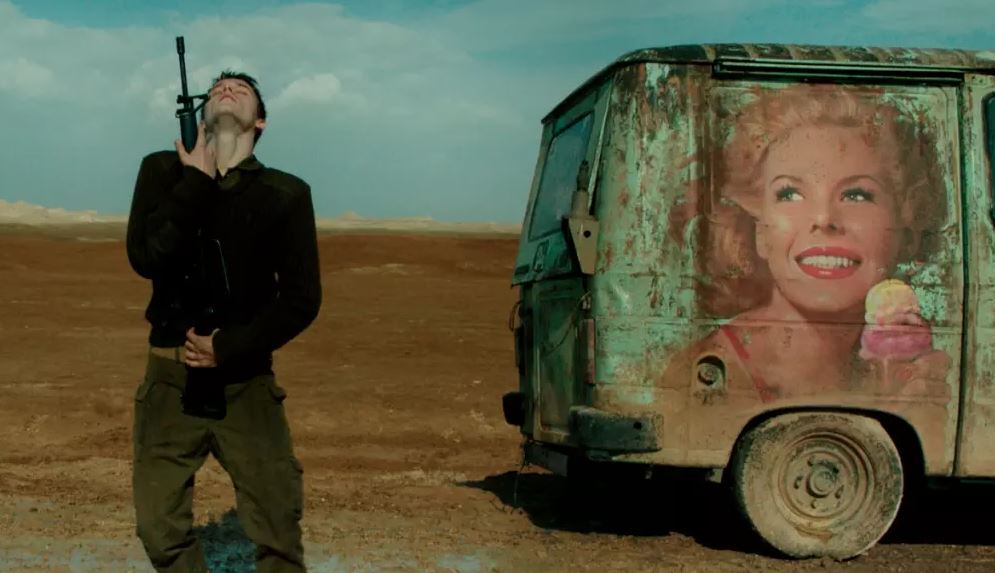The first thing we see in Samuel Maoz’s Foxtrot is a nameplate with Hebrew letters spelling out “The Feldmanns”. Pull back to the door. We hear a knock; the door is opened by a woman on the brink of middle age wearing a dressing gown; her eyes flutter and there is a thud as she hits the floor below frame.
In Israel, actor Lior Ashkenazi says, everyone knows exactly what has happened; in a country with compulsory national service, that morning knock is like a national code. This woman’s child must be dead. “In Israel, everybody knows somebody in this position,” he says. “It surrounds you: the grief.”
Maoz’s film is not about bereavement, however; that is just its starting point. His broader subject is Israeli society, shot through a sickness Maoz feels in himself and that he traces to the legacy of the Holocaust. An army medic sedates Dafna Feldmann (Sarah Adler) where she falls, which means her husband Michael (Ashkenazi) is left to deal with the death of their son Jonathan on his own. What is he supposed to do? He can’t speak. He doesn’t cry. He just kicks the dog. It turns out that he kicks the dog often, relying on the fact that like him, the dog won’t talk. Michael fought his own war in Lebanon. Of course he did: there is always a war on. Everyone carries the same burden.
“Usually there is this stereotype of men who suffer from post-traumatic stress: someone who has nightmares, he is probably lonely, he is poor,” Maoz says. “This is not right – I mean, there are cases like that but in Israel, it is the ordinary men of my generation.” Michael is an architect; the Feldmanns’ apartment is a svelte grey series of patterns and porthole windows. He has done well. Like Maoz, he is the child of a Holocaust survivor.
“If I brought to my mother a mathematics test and the mark was seven, she said, ‘for this I needed to survive the Holocaust, for seven?”‘ Maoz says. “So you understood from this that you couldn’t complain. If you came back from the war with two arms, two legs and 10 fingers, you couldn’t say that you feel bad inside. It would be ‘come on, be a man!'”
Read the preview by Stephanie Bunbury in The Sydney Morning Herald.

